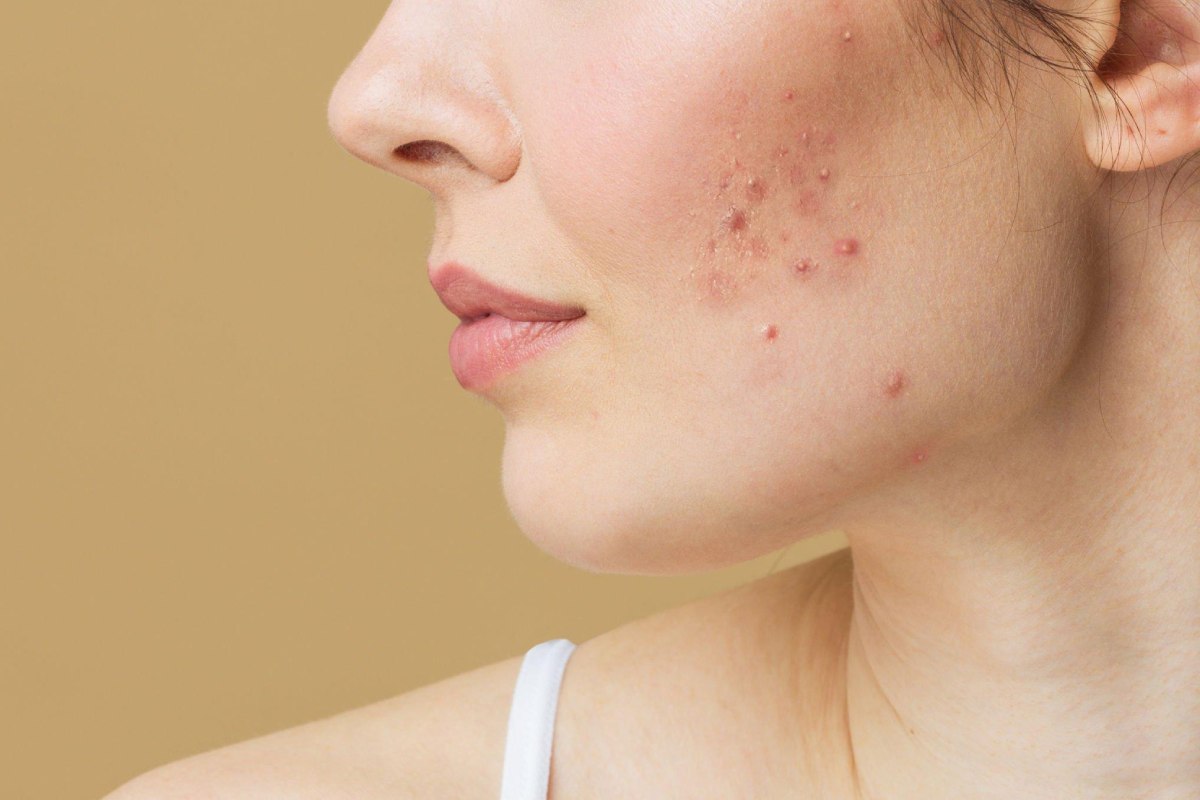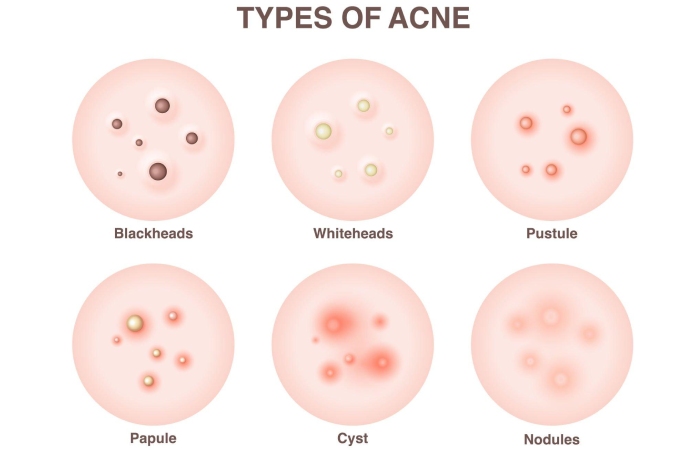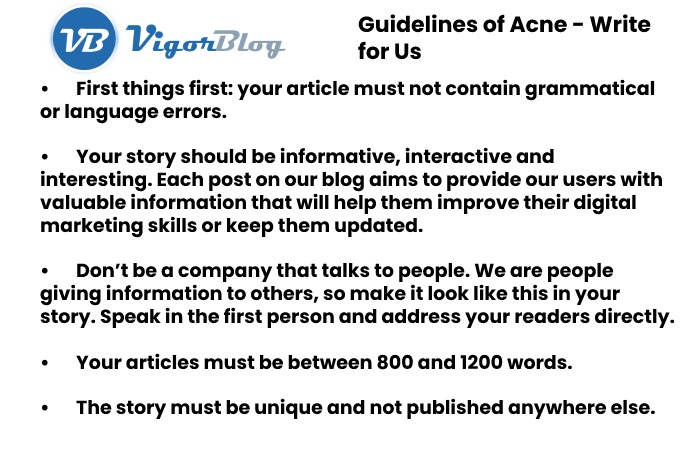Acne Write for Us
 Acne Write for Us – We want your words if you are interested in writing Acne blogs. Vigor blog provides an opportunity for content creation. We are searching for a professional and passionate article and blog writer who loves to write for the Acne niche. Our platform is an excellent opportunity to expose your expertise on your preferred Acne topic. Share your advice and experience by utilizing Vigor blog Write For Us.
Acne Write for Us – We want your words if you are interested in writing Acne blogs. Vigor blog provides an opportunity for content creation. We are searching for a professional and passionate article and blog writer who loves to write for the Acne niche. Our platform is an excellent opportunity to expose your expertise on your preferred Acne topic. Share your advice and experience by utilizing Vigor blog Write For Us.
Acne on the face, chest, and back is especially prevalent. Acne affects 80 percent of people between 11 and 30, and one in every five will leave marks. Treatment options for acne include over-the-counter medicines or one or more dermatologist-performed procedures. We offer informative blogs and articles associated with acne.
How to Submit an Article
If you’d like to submit an article, please email contact@vigorblog.com
What is Acne?
Acne is a skin disorder when hair follicles become plugged with oil and dead skin cells. It is the cause of whiteheads, blackheads, and pimples. it is most frequent among teenagers, but it can afflict people of any age.
Excessive oil production on the skin fuels the growth of bacteria that clogs pores with dead skin cells and sebum, resulting in acne. This obstruction prevents moisture from entering your pores where it is needed to keep bacteria under control, which can result in a painful breakout.
Types of Acne
 Acne can cause a variety of lesions or pimples. Comedones are swollen or clogged hair follicles, according to doctors. Acne types include:
Acne can cause a variety of lesions or pimples. Comedones are swollen or clogged hair follicles, according to doctors. Acne types include:
- Whiteheads are blocked hair follicles that remain beneath the skin and form a white lump.
- Blackheads are plugged follicles that reach the skin’s surface and open up. They seem black on the skin’s surface because to air discoloration of the sebum, not because they are unclean.
- Papules are inflamed lesions that appear as little, pink bumps on the skin and are painful to the touch.
- Pustules or pimples: Papules topped with pus-filled lesions that may be scarlet at the base.
- Nodules are large, painful, solid lesions embedded deep beneath the skin.
- Deep, painful, pus-filled lesions characterize severe nodular acne (also known as cystic acne).
What Are The Risk Of Developing Acne?
Experts are still baffled as to why some people develop acne while others do not.
They are aware that a variety of risk factors might lead to or worsen acne, including:
- Hormonal changes that occur during pregnancy or puberty
- PCOS (polycystic ovarian syndrome) and other endocrine disorders
- smoking cigarettes
- lack of sleep
- Stress
- high oil content cleansers, creams, moisturizers, and other beauty items
- some drugs, such as lithium, hormonal birth control, anticonvulsants, and steroids
- a family history of it
During puberty, you are most likely to get it. During this time, your body goes through a lot of hormonal changes. These changes can increase oil production, increasing the risk of acne. When you reach adulthood, hormonal acne improves typically, and your breakouts may even stop altogether.
Where On My Body Will I Have Acne?
it is a common find in the following areas:
-
- Face
- Chest
- Forehead
- shoulder
- The upper back.
Oil glands can be found all over your body. it is most common in areas with a high concentration of oil glands.
Why Write for Vigor Blog – Acne Write for Us
What We Want To Write In An Article
- With more and more people in the health communities becoming intensive on practicing good healthy habits, ensuring they know everything they need is essential. It calls for an industry that can produce specific and relevant content so that individuals making a change are doing so as safely as possible.
- Posting helpful, specific, and topical suggestions will ensure that the information posted about your company or business is trusted by potential customers – because nobody likes to dupe regarding their health.
- We aim to share content related to various health matters by bringing experts and professionals together to write classy, exciting articles on diverse topics to educate the masses.
Guidelines of the Article – Acne Write for Us
 You can send your article to contact@vigorblog.com
You can send your article to contact@vigorblog.com
Related Pages:

